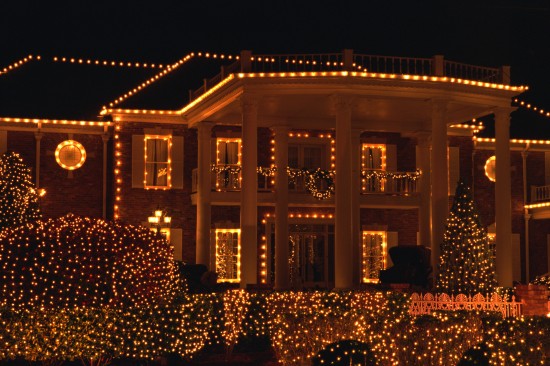Home, where my thought's escaping,
Home, where my music's playing,
Home, where my love lies waiting silently for me.
-Paul Simon, "Homeward Bound"
Paul Simon's "Homeward Bound" has been playing on a continuous loop in my head since I finished reading Pope Francis' encyclical Laudato si'. Since I'm Paul Simon's most devoted fan, the one-song mental playlist works out just fine!
I know, I know, the encyclical has been out since May, but I finally just turned the last page over, savoring a cover-to-cover reading. Reading the document in English, as I did, I was struck particularly by one word Pope Francis uses twenty-eight times: home. (Thus, Paul Simon.)
Home is a splendid Anglo-Saxon word, short, simple, and rich with meaning. Home appears over and over again in the New Testament, from the time of Jesus' conception, when the angel assures Joseph he should make a home for the Holy Family (Matthew 1:20), to the moment of Jesus' death, when John resolves to take Mary into his home (John 19:27).
In his second letter to the Corinthians (5:6-9), St. Paul reflects on the mystery of our two homes:
So we are always courageous, although we know that while we are at home in the body we are away from the Lord, for we walk by faith, not by sight. Yet we are courageous, and we would rather leave the body and go home to the Lord. Therefore, we aspire to please him, whether we are at home or away.
As St. Paul reminds us, God, in his huge bounty, provides two homes for us: one here on earth, and one glorious, everlasting home in paradise.
We are not angels, of course. We have bodies, and we must live in the physical world. It is this physical world, our common home, that Pope Francis asks us to consider:
On many concrete questions, the Church has no reason to offer a definitive opinion; she knows that honest debate must be encouraged among experts, while respecting divergent views. But we need only take a frank look at the facts to see that our common home is falling into serious disrepair. Hope would have us recognize that there is always a way out, that we can always redirect our steps, that we can always do something to solve our problems. (61)
Interestingly, when I searched for images of "home" to include here, nearly 100% of the photos looked like this:
And this, gussied up for the season:
These are magnificent dwellings, to be sure. I'm not sure our good old Anglo-Saxon house quite describes their splendor; these dreamy places require the fancy French cognate mansion. But Pope Francis insists on sobering us, calling attention to our common home. And this:
Christian spirituality proposes an alternative understanding of the quality of life, and encourages a prophetic and contemplative lifestyle, one capable of deep enjoyment free of the obsession with consumption. We need to take up an ancient lesson, found in different religious traditions and also in the Bible. It is the conviction that “less is more.” A constant flood of new consumer goods can baffle the heart and prevent us from cherishing each thing and each moment. (222)
Exquisite consumer goods don't necessarily lead us away from Christian discipleship, but they can. Given my search results for images of "home," it's safe to say the American Dream has a lot to do with consumption.
The Christmas rush is upon us, and we all have to guard against "the obsession with consumption."
Pope Francis' words can help us pray about home this Christmas--both our common home on earth and our final home in paradise.
Some families I know like to limit their consumption during Christmas, in lovely ways:
- Participating in service projects (like a parish "Angel Tree"), providing gifts or services for people in difficulty
- This works well for families of all ages and sizes, since the shopping part can easily include all members.
- Bonus! Before dropping off the gifts, gather the family around the gifts you're preparing and offer specific prayers for the people who have asked for help.
- Limiting the number of gifts for each family member
- Our own family gives just one gift to each child, on three different dates (for a total of three): St. Nicholas' Feast, Christmas Day, and the Epiphany. Spread the love!
- Some families give one gift per person, per category: "Need," "Want," "Wear," etc.
- Giving pride of place to homemade gifts
- That lopsided, brown-glazed "mug" from art class might not be as exciting as a slick new pair of Valentino boots, but the boots don't snuggle nearly as cozily as the little potter you're raising.
- Don't forget Jesus! Everyone in the family can make something special for the Newborn King. Consider drawing hearts on paper and asking each person to write or draw gifts they offer to Jesus: "I will come the first time Mom calls me"; "I will power my phone off two hours before bedtime"; "I will pray before lunch when I am at work"; "I will ask my friend if she'd like to come to church with me"; etc. Jesus is sure to love these gifts offered straight from the heart.
These are just a few ideas to help us create a real home this Christmas--a home that helps us to be considerate of our brothers and sisters on this "common home" of ours, and also reminds us of our future home. God willing, we will all gather there together one day to praise the Christ Child in person.
Those who love me will keep my word, and my Father will love them,
and we will come to them and make our home with them.
-John 14:23
Jesus' words refresh, renew, and remind me: home is a person. Jesus is my home. The way I make my family's home matters, because I am a member of the Body of Christ. May the Lord show us all the way home.
Copyright 2015 Grace Mazza Urbanski
About the Author

Guest
We welcome guest contributors who graciously volunteer their writing for our readers. Please support our guest writers by visiting their sites, purchasing their work, and leaving comments to thank them for sharing their gifts here on CatholicMom.com. To inquire about serving as a guest contributor, contact editor@CatholicMom.com.




.png?width=1806&height=731&name=CatholicMom_hcfm_logo1_pos_871c_2728c%20(002).png)
Comments